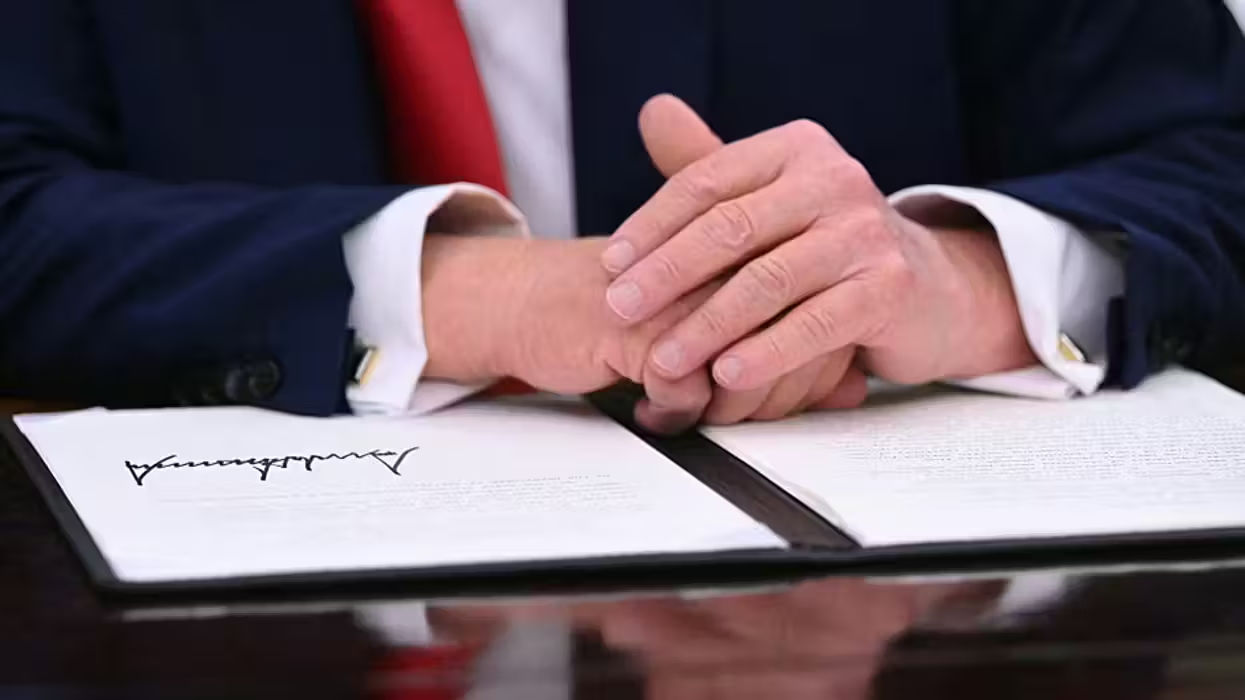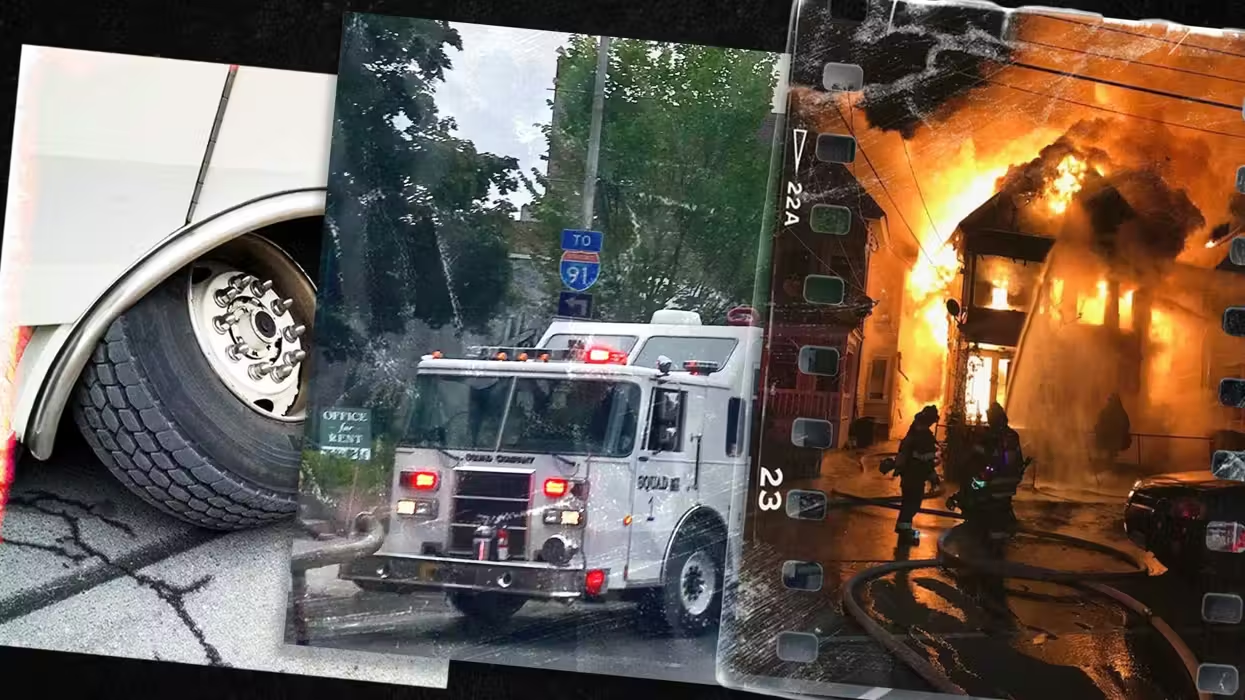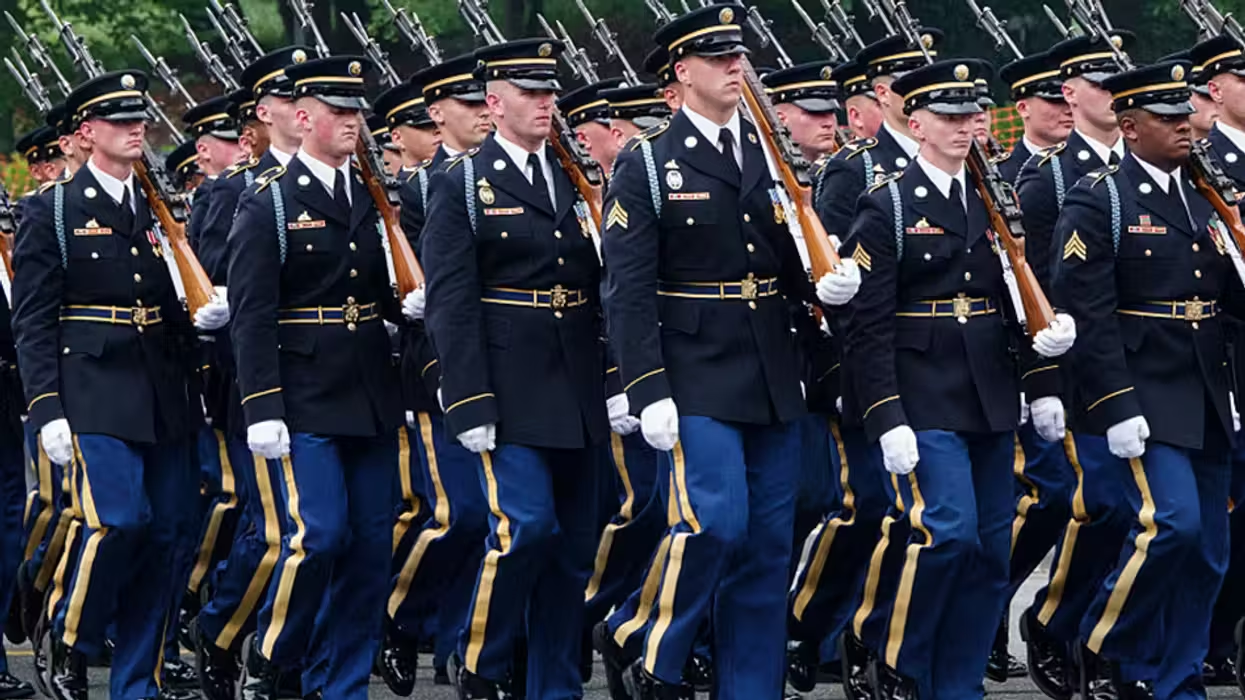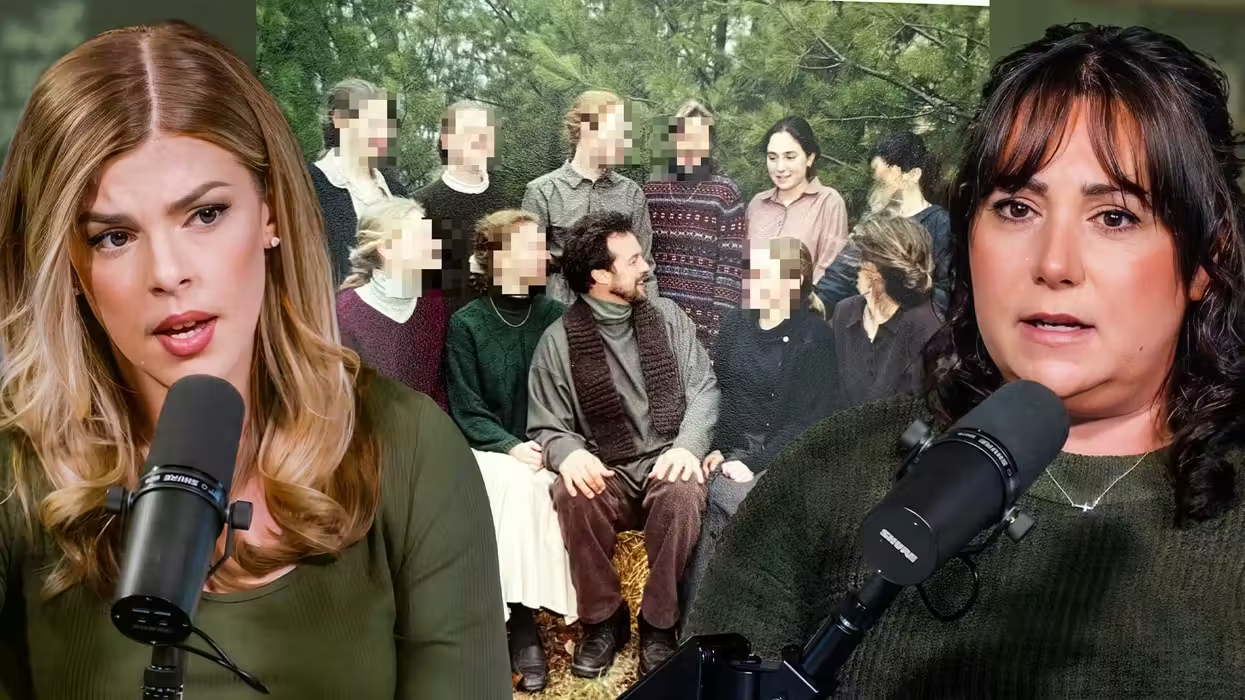
© 2025 Blaze Media LLC. All rights reserved.
As we've reported on the front side, The Supreme Court has elected to strike down three of four key provisions of Arizona's controversial immigration law, SB 1070. To read the court's full ruling, click here.
The High Court suggested there will be no decision on health care today, which means it almost certainly will be released Thursday morning. Also, judging by the authorship of released opinions so far, the Court's opinion on ObamaCare will almost certainly be authored by Chief Justice John Roberts.
For those keeping score, today's decision on AZ's SB 1070 is a net win for the Obama administration who got nearly everything it hoped for out of the decision. The Court did, however, decide to uphold one of the law's most controversial provisions -- the requirement that local police officials verify a person's immigration status while enforcing other laws if "reasonable suspicion" exists that the person may be illegally residing in the U.S. The Supreme Court's decision implies that this provision may stand as long as it is used with caution, careful not to infringe on the rights of law-abiding citizens. The question now is whether this single provision can stand on its own the Arizona legislature will need to revisit the issue.
In his dissenting opinion, Justice Scalia commented on President Obama's recent announcement suspending deportation of illegal immigrants who came to the U.S. as children -- an issue not actually part of the Arizona case:
It has become clear that federal enforcement priorities—in the sense of priorities based on the need to allocate “scarce enforcement resources”—is not the problem here. After this case was argued and while it was under consideration, the Secretary of Homeland Security announced a program exempting from immigration enforcement some 1.4 million illegal immigrants under the age of 30...The husbanding of scarce enforcement resources can hardly be the justification for this, since the considerable administrative cost of conducting as many as 1.4 million background checks, and ruling on the biennial requests for dispensation that the non-enforcement program envisions, will necessarily be deducted from immigration enforcement. The President said at a news conference that the new program is “the right thing to do” in light of Congress’s failure to pass the Administration’s proposed revision of the Immigration Act. Perhaps it is, though Arizona may not think so. But to say, as the Court does, that Arizona contradicts federal law by enforcing applications of the Immigration Act that the President declines to enforce boggles the mind.
The final decision was 5-3 in favor of the U.S. government, with Justice Elena Kagan recusing herself due to her past work on the issue as Solicitor General. Meanwhile in Arizona, state Attorney General Tom Horne says that a challenge to the law's wording was expected, but that the provisions that were shot down were minor compared to the "big, controversial one" that empowered Arizona law enforcement officers to determine someone's immigration status.
Gov. Jan Brewer also released a statement:
Today’s decision by the U.S. Supreme Court is a victory for the rule of law. It is also a victory for the 10th Amendment and all Americans who believe in the inherent right and responsibility of states to defend their citizens. After more than two years of legal challenges, the heart of SB 1070 can now be implemented in accordance with the U.S. Constitution.While we are grateful for this legal victory, today is an opportunity to reflect on our journey and focus upon the true task ahead: the implementation and enforcement of this law in an even-handed manner that lives up to our highest ideals as American citizens. I know the State of Arizona and its law enforcement officers are up to the task. The case for SB 1070 has always been about our support for the rule of law. That means every law, including those against both illegal immigration and racial profiling. Law enforcement will be held accountable should this statute be misused in a fashion that violates an individual’s civil rights.
The last two years have been spent in preparation for this ruling. Upon signing SB 1070 in 2010, I issued an Executive Order directing the Arizona Peace Officer Standards and Training Board (AZ POST) to develop and provide training to ensure our officers are prepared to enforce this law efficiently, effectively and in a manner consistent with the Constitution. In recent days, in anticipation of this decision, I issued a new Executive Order asking that this training be made available once again to all of Arizona’s law enforcement officers. I am confident our officers are prepared to carry out this law responsibly and lawfully. Nothing less is acceptable.
Of course, today’s ruling does not mark the end of our journey. It can be expected that legal challenges to SB 1070 and the State of Arizona will continue. Our critics are already preparing new litigation tactics in response to their loss at the Supreme Court, and undoubtedly will allege inequities in the implementation of the law. As I said two years ago on the day I signed SB 1070 into law, "We cannot give them that chance. We must use this new tool wisely, and fight for our safety with the honor Arizona deserves."
Want to leave a tip?
We answer to you. Help keep our content free of advertisers and big tech censorship by leaving a tip today.
Want to join the conversation?
Already a subscriber?
more stories
Sign up for the Blaze newsletter
By signing up, you agree to our Privacy Policy and Terms of Use, and agree to receive content that may sometimes include advertisements. You may opt out at any time.
Related Content
© 2025 Blaze Media LLC. All rights reserved.
Get the stories that matter most delivered directly to your inbox.
By signing up, you agree to our Privacy Policy and Terms of Use, and agree to receive content that may sometimes include advertisements. You may opt out at any time.






